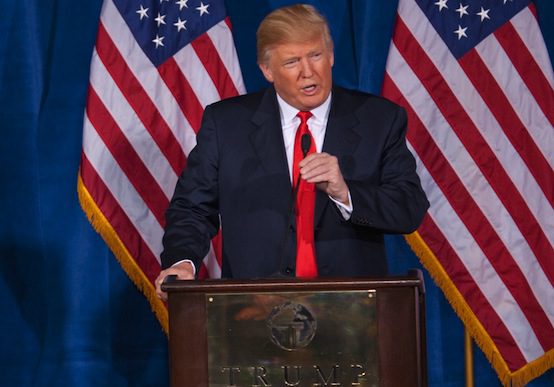Trump and the South Carolina Debate

The ninth Republican debate was the most vitriolic and angry one we’ve seen so far this cycle. Trump went after Cruz, Rubio, and Bush, and all of them directed most of their attacks against him for what seemed like the first time. The audience was packed with party regulars, who obsequiously cheered whatever Rubio and Bush said while loudly booing Trump. They were pretty clearly not representative of the South Carolina voters that will go to the polls at the end of the week. The biggest clash came between Trump, Bush, and Rubio over the Iraq war, 9/11, and George W. Bush’s record relating to both.
Trump countered Rubio’s line that Bush “kept us safe” by emphasizing that the 9/11 attacks happened while Bush was president, and further that Bush had ignored warnings about possible attacks. Both of these claims have the virtue of being true, but they’re not the sort of things that Republican candidates are supposed to say about George W. Bush. It holds him responsible for a major national security failure that happened while he was president, and many partisans are unwilling to do that. More to the point, Trump’s criticism judges Bush on results rather than ideology or intentions, and like most Americans he finds Bush badly wanting. Trump has proven that he isn’t constrained by many other political conventions, and he showed again that he won’t refrain from criticizing Bush even when it may hurt him politically.
Trump also said that the Bush administration lied about the presence of WMDs in Iraq. As far as most opponents of the Iraq war are concerned, this is obvious. It is what most of us have been saying for more than a decade in one form or another, and it’s true. There is no question that the administration distorted and misrepresented what they knew about Iraq’s weapons programs, and they treated as certain claims that were anything but that. The Bush administration misled the public and made claims about the supposed “threat” from Iraq that they had to know to be false. One of the most obvious lies told during the Iraq debate was when Cheney confidently asserted that Iraq had reconstituted its nuclear weapons program. There was no evidence to support that claim. The administration was looking for an excuse to topple Hussein anyway, and exploited the public’s fear following 9/11 to that end. That wasn’t all they lied about. Administration officials made baseless claims of cooperation between Hussein and Al Qaeda, and encouraged the public in the false belief that Hussein had some hand in the 9/11 attacks. Framing the invasion of Iraq as having something to do with anti-terrorism also encouraged that false belief. Of course, the biggest lie at the core of the pro-war argument was that a weak regime with unconventional weapons couldn’t be deterred. Even if the administration’s claims about weapons programs had been true, that wouldn’t have justified the invasion or made it any less illegal.
Trump’s attacks on the Bush record have made Iraq war dead-enders and Bush loyalists even more hostile to him, but they have been against him all along. It’s possible that Trump’s rhetoric could backfire on him in this case, since Bush is still viewed favorably by most Republicans. Then again, he has been criticizing the “Bush kept us safe” mantra for months without losing support. Trump’s larger point that the Iraq war was a “big, fat mistake” probably counts for more with his supporters than arguing about Bush administration dishonesty. Because he has cultivated the image of being a hawk and a nationalist, he may be able to “get away” with saying critical things about Bush that another candidate couldn’t. Bashing Bush for both dishonesty and incompetence fits into his general theme that the U.S. has been governed by “stupid” people, and that may be more appealing to disgruntled Republican voters (including those that profess to like Bush) than anyone imagines.
If criticizing Bush for two of his biggest, costliest failures as president were to end up derailing Trump’s candidacy, that would mean that most of the party is still in the grip of Bush-era delusions. Anyone interested in an even slightly more sane Republican foreign policy has to hope that isn’t true. He may lose some support in the next week because of the debate, but Trump’s lead in South Carolina is likely large enough to secure him a win there on Saturday.
Comments